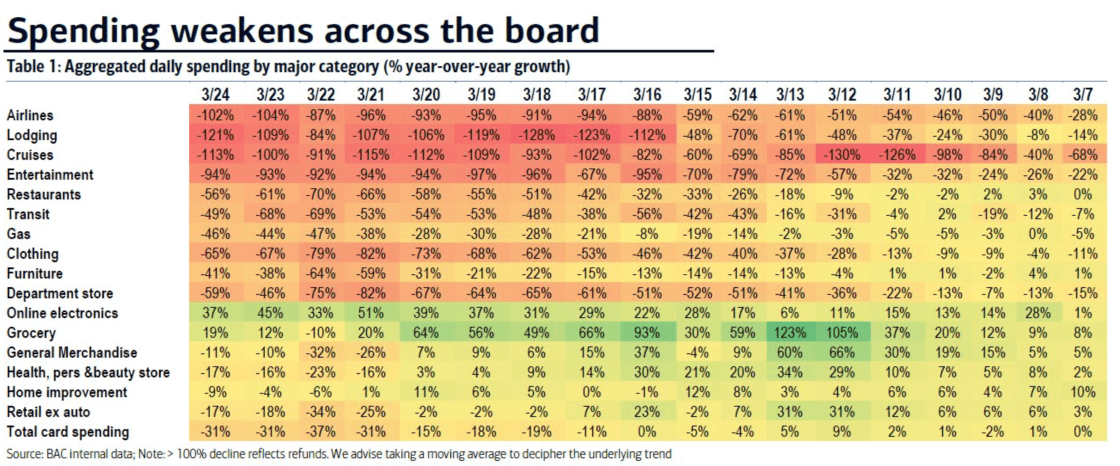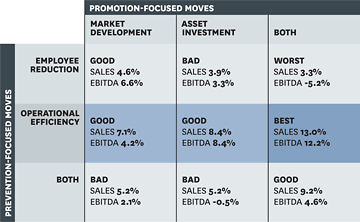- HOME
- Management
- Surviving the next big recession: What should business owners do right now?
Surviving the next big recession: What should business owners do right now?
- Last Updated : August 7, 2023
- 1.2K Views
- 6 Min Read

Let us start with the obvious problems at hand. The world is facing the biggest humanitarian crisis since WW2. There are more people staying at home than at work. People are not ready to buy anything unless they really need it. Businesses of all sizes continue to suffer as a direct impact of the lockdown. A record number of 6 million people have claimed unemployment in the United States. Most importantly, we are at a time where the entire world is fighting a common problem.
We are staring down at a massive global recession now. As you can see from Google Trends, the number of searches for the term “recession” has peaked. The last time this happened was 2008. Though the S&P 500 index hasn’t reached its 2008 recession low, the alarm has been raised for a period of lean economic activity around the globe.

As a business owner, this is an incredibly uncertain time, and surviving this crisis is everything. But all is not lost. As they say, a crisis holds the potential for opportunities. So, what will it really take for your business to weather this storm?
It’s simple. Planning for the future while fully understanding the reality of the current situation.
I have compiled a list of a few key points that will help businesses improve their forecasting during this crisis, and explain how they can recover once this downturn ends.
Be realistic. Ask the tough questions.
How can I make it through this crisis? What is the expected cash runway? Is my product or service really needed right now? What are the options to keep my business afloat? Should I consider moving out of the current place, and setting up my office in a place where I pay less rent? Is there a way I can invest in future growth by making use of my available resources?
These are a few important but realistic questions that you need to ask yourself right now. The significant factor in this crisis is that no one anticipated any of these global events to occur in the way that they have. According to a recent analysis from Bank of America, overall spending in the US has dropped drastically across all major categories.

So, if you are not running an online electronics or grocery store, chances are that your business has been hit hard by this crisis. And clearly, you can see a massive fall in spending, which is what the early stages of a recession looks like.
Recommended reading: How to respond to a bad sales month
Determine your wartime strategy
The one word that will save your business is strategy. This is the time where strategic businesses will survive and win. Firing your employees or completely stopping your business activities and waiting for the crisis to pass through is a waste of time both for your business and your people. As a business owner, this should be the last of your actions when you have exhausted all of your other options. At the same time, you shouldn’t be too bullish about your opportunities during the recession and go all out, spending huge chunks of money from your reserves. You need to find a strategy that will work for your unique business scenario.
A Harvard business study notes that there are four typical responses from a company to a slowdown: Prevention-focused companies (primarily making defensive moves), promotion-focused companies (investing more on offensive moves), pragmatic companies (combining defensive and offensive moves), and progressive companies (identifying an optimal combination of defense and offense).
Out of these options, the Harvard study observes that progressive companies, who strike the elusive balance between defensive and offensive moves, turn out to be the post-recession winners.
These [progressive] companies’ defensive moves are selective. They cut costs mainly by improving operational efficiency rather than by slashing the number of employees relative to peers. However, their offensive moves are comprehensive. They develop new business opportunities by making significantly greater investments than their rivals do in R&D and marketing, and they invest in assets such as plants and machinery. Their postrecession growth in sales and earnings is the best among the groups in our study.

Remember, it’s not only about growth. It’s also about survival. Plan your war-time strategy today by combining the best approaches of offensive and defensive techniques for your company.
Recommended reading: 5 marketing lessons from a pandemic
Learn, unlearn, and relearn
History is the best teacher. Take cues from some of the businesses that have survived multiple recessions over time. They have seen everything, from plague, to world wars, and now the coronavirus. It’s almost certain that they will come out of this situation unscathed, as well. So, it is essential to learn the success stories of the past and execute in the present, so that your business can thrive in the future.
Here is our own story of surviving two recessions: both the dot-com bubble in 2000 and the larger financial crisis of 2008. Back in 2008, Zoho Corp’s founder and CEO, Sridhar Vembu, wrote a blog on how companies can survive a financial crisis, sharing his own experiences of dealing with the dot-com bubble of 2000.
In Sridhar’s own words:
“So, how did we overcome that shock? Here are the things that helped us. In 2000, there was a venture capitalist who was offering us $10 million for a 5% stake in order to enable us to grow faster. After careful thinking, we turned that money down, because we felt the industry was going to shrink, not grow, and we didn’t want to commit to a growth projection when our instinct told us to get ready for contraction. We felt if we were to be honest to ourselves, we had to tell the VC we expected to shrink, yet the money was coming in at such a high valuation that it needed growth as far as the eye could see to justify it. One of my friends in venture capital did tell me I was a fool – but that folly saved us.
We didn’t expand our headcount in line with revenue in 2000. We simply banked the cash – which came in really handy in the subsequent nuclear winter. Indeed, it was that cash that enabled us to diversify in 2004, and that was ultimately what led to Zoho.”
If not for the 2000 dot com bubble, Advent Network Management (AdventNet) wouldn’t have transformed itself into a global IT product company of more than 50 million users (Zoho). So look around, learn from the best and the worst, look at alternate revenue streams, reinvent your business model (if you can), and keep yourself engaged with lots of learning and unlearning during this lean period.
Put customer relationships at the forefront
Maintaining good customer relationships can help you in both good and bad times. Being honest with your customers, trying to help out in times of crisis, and providing the same level of attention and service is the key to unlock future growth when the good times return.
When there are early signs of a recession, businesses want to cut the money they’re spending on attracting new customers. You need to be able to fully focus on solving the needs of your current customers. The power of “word-of-mouth” marketing is something that is incredibly underrated in the world of paid advertising and hefty marketing budgets. This is how a good CRM system can help you identify the champion customers of your business.
Recommended reading: Identify your best customers and don’t let them go.
Once things calm down, these customers will remember you as the good guy who served them well and never failed to keep up a promise. Summing up, these are unprecedented times, and the way you maintain your relationships with your existing customers will create brand loyalty for years to come.
Prepare a forecast of your future opportunities
When we fall, we get back up again. It may be a few months or even a full year, the recession is going to end someday. Is your business equipped to meet the new demand? That’s why making sure you’re prepared for growth (not just recovery) is the only way of finding some sanity in these times of uncertainty.
As Warren Buffett says, “Be fearful when others are greedy, and greedy when others are fearful“. Spend time to think about your opportunities in the post-recession world. R&D might be a great place to focus your efforts as you explore a new pathway out of the recession. If you are selling a product, explore how you can reduce the total cost of production, and how you can become more profitable. If you are in the service sector, consider new ways to improve service delivery. After all, these are the days that you should use as the launchpad to prepare for your future success.
While you cannot definitively forecast how things will pan out in the future, or when the stock markets might fall again, there are certain strategies to withstanding a period of tough economic conditions, and you may have to be prepared for the worst, even if the worst doesn’t happen.
PSA: If you are a small business owner looking for some financial assistance during this downturn and are operating in the United States of America, you are eligible to apply for the Paycheck Protection Program by the Small Business Administration (SBA). You can find more info about the program here.


